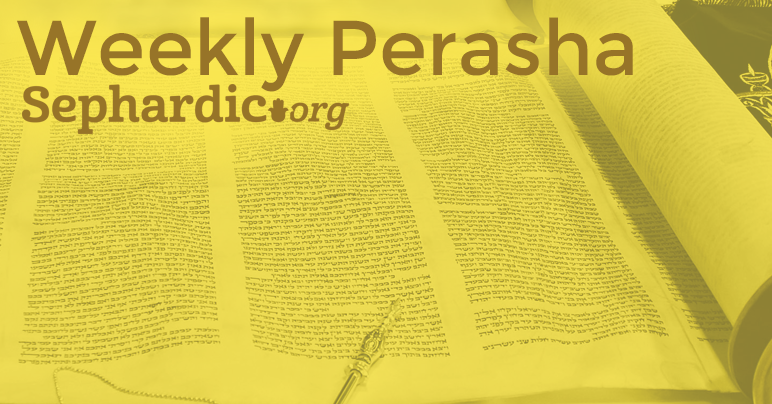
BEHUKOTAI - DONATING ONE'S LIFE FORCE BACK TO ITS ORIGIN
There are two ways in which one may pledge the value of a person to the Temple Treasury. The first uses a formula which references a person's worth; obligating the vower to value - the amount one would fetch if he or she were to be sold as a slave. 1 The second uses a formula or expression indicating a dedication of the worth of his soul - Nefesh or life force to God. Since one cannot employ material criteria in this type of valuation, the Torah establishes objective criteria in its calculation unrelated to market value. The Torah delineates four groupings for males and another four groupings for females to total eight categories which rise and fall according to age. The groupings are one month to five years; five to twenty years; twenty to sixty years; sixty and above. The formula for the dedication is הרי עלי ערכי I take upon myself to give my Erekh. 2 The word ערך is usually translated as valuation. However, R. Hirsch explains etymologically that it means "placing things that belong together next to each other". 3 He also associates it phonetically with ארג or to weave in a manner of intermingling threads that run parallel to each other. The end of the relative verse in our parasha can be elucidated as follows - “One who expresses a vow and wishes to insure the return of his soul once again back to its origin to its place before Hashem.” 4
THE ROOT OF THE SOUL ORIGINATES AT THE KISE HAKAVOD
The spiritual "throne" of the kavod of Hashem is described in the Prophetic works of Yishayahu and Yehezkel as well as in the Sefarim of Melakhim and Daniel. It is being upheld spiritually by those with roots beneath it. This lofty spiritual level is called kavod כבוד - while its vessel or what holds it is called its כסא or throne. R. Bahya writes that the root of our soul originates at this throne 5 of the כבוד - The expression בערכך נפשת לה׳ is peculiar in that it has an extra final כ - khaf. Accordingly he writes that this is an allusion to the כסא or throne. He cites a teaching of R. Akiva regarding this letter כ - khaf - in its request to the Creator. "I wish that you will employ me when creating the universe seeing that they call me your throne..." In response to this request the כסא was revealed. With this knowledge R. Bahya translates the words in our verse; "To arrange or set the throne of Kavod which is upheld by the souls before Hashem" - 6
NOT ALL SOULS RETURN TO THEIR ORIGIN AFTER LIFE ON EARTH
We find the word for souls נפשת in the verse written deficiently. Apparently - writes R. Bahya that not all souls merit to return back to their origin beneath the כסא הכבוד after their sojourn here on earth. The Talmud relates a statement in the name of R. Shimon Bar Yohai " I have seen the souls (people) which are scheduled (after death) for elevation (back to the throne) and they are very few in number. 7 The narrative then continues its discussion concerning the number of souls who are deserving to ascend to this spiritual level in proximity of the כבוד of Hashem or his Shehina - Divine Presence. The Talmudic narrative concludes that while there are indeed various levels that the righteous perceive/experience now or will in the future - not all souls will merit a return to that lofty level.
THE FORMULA TO PLACE HIS SOUL BACK TO ITS ORIGIN
It appears to me that the Torah provides via the Erekh Vow for all of Israel to carve a pathway after death back to their spiritual origin. This is accomplished via a vow and donation to the Temple Treasury corresponding to the spiritual fixed value of their soul. The Midrash portrays the Creator as saying " If you donate to me the monetary equivalent of your person I will consider it as if you had "donated" to me your souls." 8 It appears to me that donating connotes an ascent ; as in its Hebrew equivalent תרומה or raising upwards. Hence the Midrash is apparently teaching an alternative method of raising one's soul back to its origin. Furthermore the Torah mandates that this donation take place via a Neder or a vow. We know from the writings of R. HaAri that the נדר has its spiritual roots in Binah or Beri'ah 9 - also associated with the כסא הכבוד - R. M. Alshikh points out though that this vow should not be compared to normal vows but rather considered in its transcendental capacity as is expressed in the word כי יפליא - or wonderment - having its roots in the highest spiritual regions. 10 So we can explain the verse as follows; If one considers that he might not be amongst the few (according to Rashbi) that are scheduled through their service of Hashem to merit an elevated return of his soul back to the throne of kavod - He is given an opportunity by making a transcendental vow to arouse the spiritual level wherein lies the throne. He must vow to donate the fixed amount as prescribed by the Torah which is equal to the value of his soul. This will assist in paving the way to have his soul return after death to its origins beneath the throne of kavod - and to bask in the Divine Presence.
PREPARING A PLACE BY THE TABLE OF HASHEM
One might fear that he might not merit an elevation of his soul to its Erekh (origin) - Or even worse חס ושלום - its descent to a newly formed Erekh in Gehinom as it is written - "His Arukh of Gehinom has been prepared". 11 The Torah considers it appropriate therefore to consider evoking a counterbalance. He is to make a donation or elevation of his soul money to the physical Temple which parallels the spiritual dwelling place of the Divine Presence in the form of an Erekh. 12 He will thereby create or establish his Erekh (place of connection) back to its soul origin in the vicinity of the כסא הכבוד This is apparently what we pray for in a verse from the 23rd chapter of Tehillim. תערך לפני שלחן Please prepare for us - our fixed or original place back before the table of YHVH.. 13 At the Eulogy - it is similarly our custom to mimic the refrain of Abigail in her prayer regarding David Hamelekh "May the life soul נפש of my master be bound up in the bond of life with Hashem your Lord." 14 This of course is a request that the soul return back to its pure origins.
Shabbat Shalom








